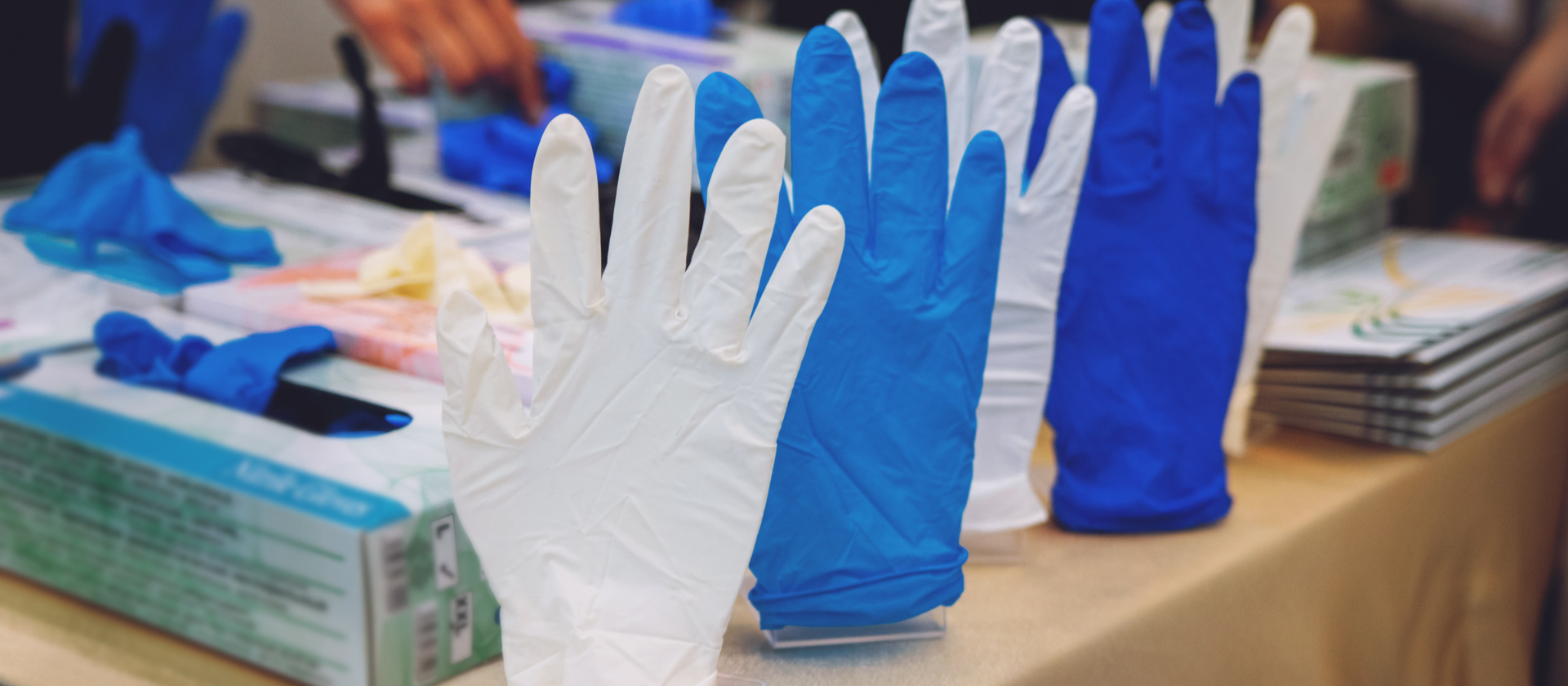Laboratory Safety: Gloves by Material
All labs must create and implement plans that address potential safety hazards, seen and unforeseen. Laboratory gloves present a first line of defense for scientists and technicians against caustic materials, samples, spills, and other potential dangers.
Yet, not all gloves are the same. More people are allergic to latex, so glove makers are using different materials. The following descriptions provide an overview of the most common types of gloves and their applications.

Latex
Natural rubber latex is the most elastic of the materials MICROFLEX® uses to make its disposable gloves. It is the original disposable glove material because it is elastic and inexpensive. So far, scientists have been unable to duplicate the elasticity and low cost associated with natural rubber latex. Thus, it remains a dominant player in the disposable glove industry.
The quality associated with latex used in disposable gloveshas changed in recent years. Latex gloves used to be inconsistent and had lots of latex protein. Now, they offer consistently good quality and perform well with low protein content.
Neoprene
Neoprene has stood alone for many years as the most comfortable synthetic glove. Neoprene is closer to natural latex in comfort and offers an alternative to protein-rich natural latex than nitrile. This is because Neoprene is more chemically similar to latex than nitrile.
However, the market landscape has changed as less expensive nitrile gloves have gotten close to a similar comfort level as Neoprene. Not many Neoprene disposable gloves are available. This is because only a few companies have been able to lower the cost of the raw material.
For users who seek a durable, comfortable disposable glove, a Neoprene glove, such as NeoPro®, is a solid glove choice. Some Neoprene products are more puncture resistant than natural rubber latex and maintain an excellent grip when wet, thus offering specific application advantages in wet, dexterity-intense environments.
For users who seek a durable, comfortable disposable glove, a Neoprene glove, such as NeoPro®, is a solid glove choice. Certain Neoprene items are more puncture-resistant than natural rubber latex. They also have a strong grip, even when wet. This makes them useful in wet and dexterous environments.
Nitrile
Nitrile latex used in making disposable gloves has always been a popular alternative to latex because of its cost. Nitrile gloves protect latex allergy-sensitized users from chemical or biohazardous environments as a synthetic alternative.
Nitrile has been evolving since its inception. It used to be a stiff and non-elastic choice for gloves. This stiffness presented itself as an uncomfortable glove that people disliked using.
Nitrile’s evolution has been progressing particularly quickly in the last half-decade, so comfortable nitrile has been important for users. Finally, comfortable nitrile is available from Microflex in both the FreeForm and UltraSense. UltraSense is arguably so comfortable that users who prefer latex may decide to switch to UltraSense.
Vinyl
Vinyl gloves are made from the same material as PVC pipe but are much thinner. An advantage of vinyl is its cost. Vinyl is the most inexpensive glove produced in the market today. Vinyl gloves have a different barrier integrity compared to traditional glove materials.
Vinyl is manufactured differently than other synthetic glove materials and is prone to barrier integrity problems, especially under use conditions. It is not an elastic material, nor is it a very strong material. These attributes show up in the glove’s comfort, fit, and performance under challenging environments. Microflex does not recommend using vinyl products under very dangerous conditions, where exposure could result in sickness.
When choosing the appropriate glove for your lab work, consider the following:
- Application
- Process - rigor
- Chemicals used, if any
- Reactivity of materials used
- Glove material
For help finding the right lab glove, contact The Lab Depot's sales team at 1-800-733-2522 or email [email protected]. Alternatively, you can also use the Live Chat feature on our website.








